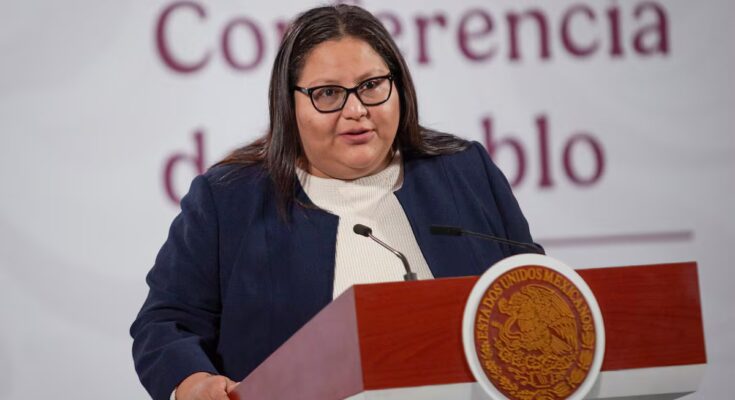The head of the Women’s Secretariat, Citlalli Hernández, presented the Comprehensive Plan against sexual abuse on Thursday, after President Claudia Sheinbaum reported that she had filed a complaint against the man who molested and touched her on the street without her consent last Tuesday. The project aims to review the laws in force in the country regarding sexual abuse – a crime of which the president was the victim – to achieve approval and punish them criminally throughout the national territory. Hernández announced that state and federal legislators will meet on November 13 to promote the changes undertaken by Sheinbaum.
Sexual abuse is defined by Mexican laws as the performance of sexual, touching, or obscene acts. It also defines it as forcing a victim to witness a sexual act or expose their body, as well as touching that explicitly depicts sexual acts or forces the victim to perform them. Some of the aggravating circumstances of this crime are the use of physical violence and if the victim is a minor.
The Federal Penal Code of Mexico includes the crime of sexual abuse in article 260 and punishes it with up to 10 years in prison and 200 days of fine. Secretary Hernández also presented a mapping of the conditions in which the criminal typology of sexual abuse is found in the States: in 19 entities there have been improvements in the criteria with various aggravating circumstances which mean that the punishment can be more serious; In nine states the crime is classified, but does not include sufficient aggravating factors, and in four states the crime is classified, but is not called sexual abuse.
“What the president has taught us is that with this review we try to ensure that the crime of sexual abuse is similar in all entities of the republic, so that the penalty is strong and so that women know that they can report when they find themselves experiencing this situation,” Hernández explained.
The process of homologation of sexual abuse wanted by the Federal Government provides that it is considered a serious crime throughout the country and that the punishment criteria and sanctions are also homologated. “It analyzes the way in which the complaint is much more agile. And it will incorporate the highest standards of protection (non-legal limitations, aggravating circumstances, loss of parental rights, when it comes to public employees, global compensation and more),” Hernández said in a presentation.
The secretary invited men to participate in the discussion and solution of this type of crimes that women in Mexico suffer in public spaces: “Socially we reflect on how to build a new relationship between men and women with equality and respect. (…) We believe that it is important to direct campaigns aimed at men towards this cultural change,” she said. “Remind all girls, young people and women that they are not alone,” she concluded.
On November 25, on the occasion of the annual commemoration of the International Day for the Elimination of Violence against Women, the progress of the campaign will be presented, which hopes to increase reporting and promote fundamental change to improve the lives of millions of Mexican women who suffer every day this and other types of sexist violence in the streets, in the workplace and in their homes.



